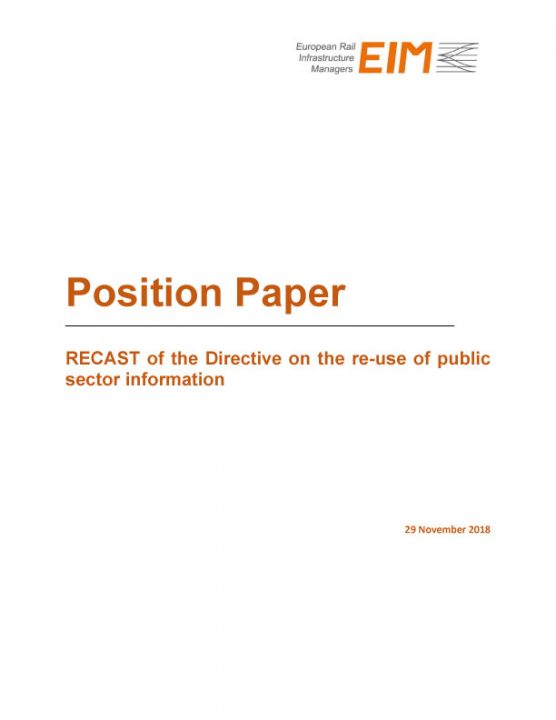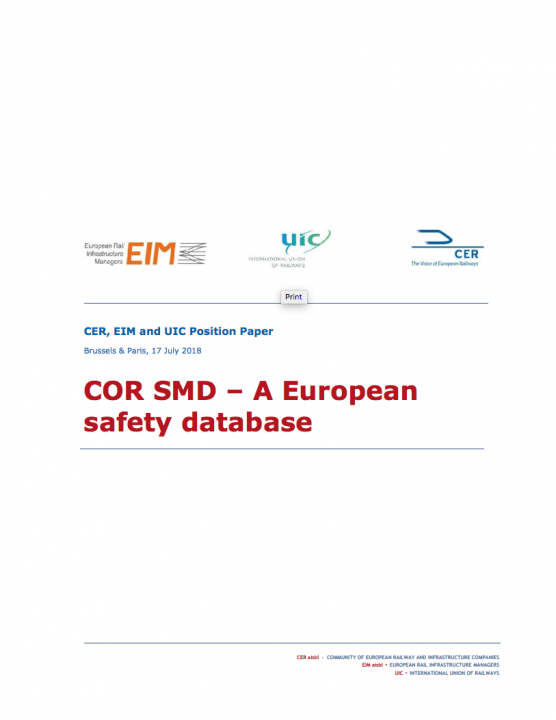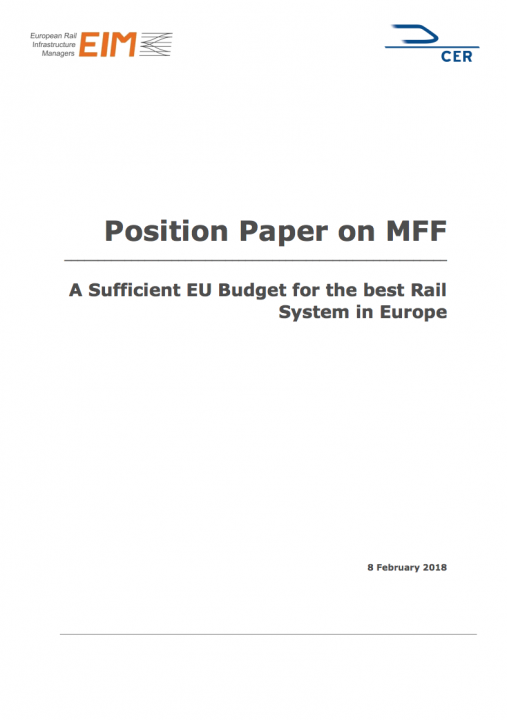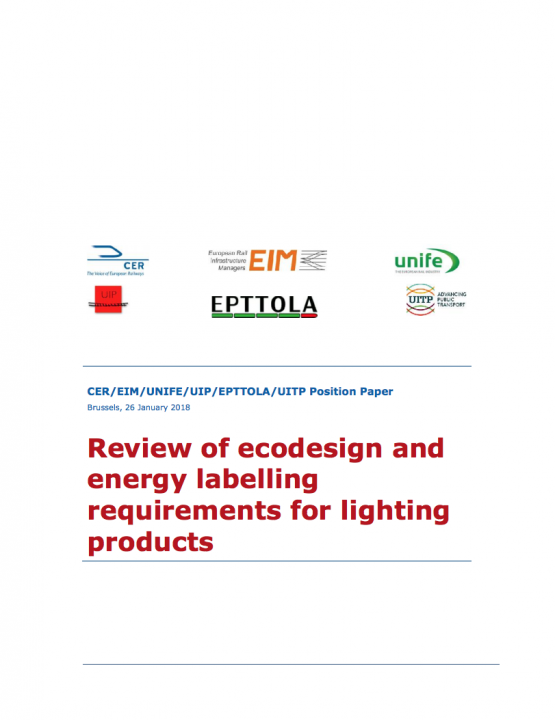3rd December 2018
On the 25th of April 2018, the European Commission adopted a proposal for a revision of the so-called ‘Public-Service-Information Directive (PSI-Directive)’ on the re-use of public sector information. The European Rail Infrastructure Managers (‘EIM’) are aware of the important role of data in nowadays society and are also willing to contribute towards the goal of creating a ‘digital economy’. Many members of EIM already operate online ‘data-platforms’ which are mostly free of charge and easily accessible, offering a wealth of data and information to rail end users. However, EIM shares some concerns regarding the scope of the Directive and the lack of added value of the Directive (especially vis-à-vis the already existing Directive on Intelligent Transport Systems). EIM also argues that the notion of ‘public works’ should be omitted from the scope of the ‘high value data sets’ because the obligations are not sufficiently clearly defined.
29th November 2018
The EU has been at the forefront of international efforts towards the Paris climate agreement and took legislative steps to implement its target to reduce greenhouse gas emissions by at least 40% by 2030. On 28th November 2018, the European Commission has published a Communication on the long-term strategy for GHG emissions reduction ahead of the 24th session of the Conference of the Parties, taking place in Katowice in December 2018. Transport emissions are the main obstacle in delivering the EU’s climate objectives. Decarbonisation of the transport sector remains both a challenge and an opportunity for the greenhouse gases reduction policy. Rail is the only mode reducing its emissions and thanks to energy-efficient zero carbon railways there can be more transport activity with lower and lower emissions in Europe.
2nd October 2018
EIM proposes a clear reference to the ‘data relating to train movements within the meaning of Annex II’ that is to be provided on a non-discriminatory basis to railway undertakings and ticket-vendors. EIM believes this achieves the intended purpose of including paragraph 4 of article 9 in the recast, which is to clarify the data to be made available by Infrastructure Managers to Railway Undertakings.
19th July 2018
The GRB published a position paper on the general principles for the route compatibility check (RCC) before the use of authorised vehicles as outlined in Article 23 of the Interoperability Directive (EU) 2016/797
17th July 2018
CER, EIM and UIC support a form of enhanced safety management data capture at European level, underlining that we fully believe exchanging safety related data on European level is beneficial for the European railway sector and its stakeholders. CER, EIM and UIC believe that the exchange of appropriate safety related data brings added value to all parties in the sector.
13th July 2018
The Group of Representative Bodies (GRB) and the CEN/CENELEC/ETSI Sector Forum Rail (SFR) published a position paper to set out the railway sector’s vision for how referenced standards within the Technical Specifications for Interoperability (TSIs) should be managed in the future.
8th February 2018
EIM and CER jointly published a Position Paper on MFF - A Sufficient EU Budget for the best Rail System in Europe
26th January 2018
The European railway sector is fully committed to develop a sustainable and energy efficient railway system by deploying energy efficient measures and energy efficient products. However, the European railway sector is concerned about the envisaged ban of the placing on the market of fluorescent tube T8 lamps in the European Union by 2020 as such a short transition period is not consistent with the sustainability goals of the railway sector. The European railway sector fears that it would go against the intended energy savings and reduction of emissions while causing an important economic burden to the railway sector.
21st November 2017
Regulation (EU) 1371/2007 aims at ensuring high quality rail services for the benefit of passengers, granting them significant rights on the same line as other modes of transport. The Regulation builds on the existing ‘’Uniform Rules concerning the Contract for International Carriage of Passengers and Luggage by Rail (CIV)’’ and extends its scope to domestic rail passenger services.









